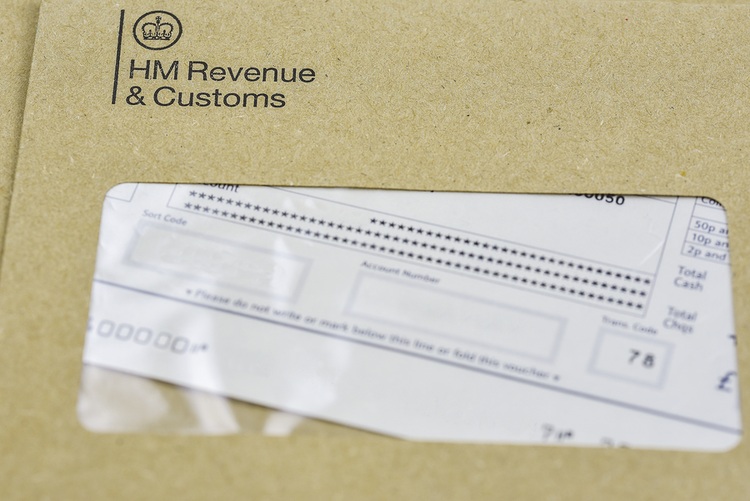 Believe it or not, there is such a thing as a professional gambler. For those that feel as though they’ve mastered gambling as a pastime, making a living from it makes sense given its tax-free nature in the United Kingdom.
Believe it or not, there is such a thing as a professional gambler. For those that feel as though they’ve mastered gambling as a pastime, making a living from it makes sense given its tax-free nature in the United Kingdom.
The problem is, for many, gambling doesn’t seem like a particularly reliable source of income. Given the fact that people can lose as much money as they can win, it is hardly a surprise that there might be a dubiousness from some quarters when it comes to the idea of calling gambling your main source of income.
You might imagine that it is all but impossible to get a mortgage as a recreational gambler, for example, let alone if gambling is what you do to make the bulk of your money. In actual fact, it is possible to get a mortgage if you’re a professional gambler, with most mortgage providers asking for proof of a steady income from those that wish to do so.
Of course, the very nature of gambling is such that you would need to be extremely confident in your ability to win enough money on a constant basis to keep bringing in a sufficient amount to call it an income.
Gambling Income Isn’t Taxable
 Thanks to the changes to the law that were introduced by Gordon Brown’s government in an attempt to win back gambling firms that moved to countries like Gibraltar in the 1990s, income from gambling is not taxable in the United Kingdom.
Thanks to the changes to the law that were introduced by Gordon Brown’s government in an attempt to win back gambling firms that moved to countries like Gibraltar in the 1990s, income from gambling is not taxable in the United Kingdom.
According to His Majesty’s Revenue and Customs, gambling is not considered to be a trade. According to their own Business Income Manual, “The fact that a taxpayer has a system by which they place their bets, or that they are sufficiently successful to earn a living by gambling does not make their activities a trade.”
This isn’t to say that someone gambling professionally will never owe HMRC any money. If they were to be paid to appear on television or at a trade show, for example, in order to talk to people about their expertise of gambling, this would be a taxable income. It is just that the winnings that a person makes from the actual gambling doesn’t require the punter to pay tax on it.
That being said, it is absolutely still worth someone keeping detailed notes of their wins and losses from gambling in order to comply within any possible HMRC investigation into where they get their money. It can also be worth including significant gambling winnings on tax returns. While you will not have to pay tax it gives a legitimate record of those winnings. It is also worth noting that if you engage in spread betting you may be liable to pay tax as this is a financial product not a gambling product.
When it comes to tax, the other thing to remember is that gambling winnings will still be included in anything that someone else receives when you die. That is to say, money earned from gambling is still liable for Inheritance Tax should it be given away, or tax that is paid when someone dies and their money and belongings pass to a family member.
You won’t pay National Insurance contributions, however, so it is worth doing so on a voluntary basis if you are someone that wishes to make use of a state pension when you’re older.
Getting A Mortgage
 In theory, gambling as a practice shouldn’t be enough to stop you from getting a mortgage. If you have a history of gambling, however, then this might have an impact on your ability to get a mortgage.
In theory, gambling as a practice shouldn’t be enough to stop you from getting a mortgage. If you have a history of gambling, however, then this might have an impact on your ability to get a mortgage.
Some mortgage lenders have strict eligibility criteria, which means that they will be wary of anyone that has even a sporadic association with gambling as an activity. This becomes even more relevant if you have lost a significant amount of money through your gambling. Mortgage lenders will usually consider the following things:
- How much you risk
- How often you gamble
- How much money has been spent gambling
- How much you win or lose
- How recently you gambled
- What type of gambling you’ve taken part in
- Whether you have bad credit on top of your gambling
That being said, simply having gambling transactions on your bank statement won’t immediately preclude you from being able to get a mortgage. With some mortgage lenders, it’s even possible to get a mortgage if your profession is gambling and that is where you get most of your income from, although it is worth bearing in mind that this isn’t all mortgage lenders.
How Much Is Too Much?
 Whilst gambling can absolutely be classed as a main source of income, there is a question around the idea of how much is too much. Those that tend to lend people money, whether that be in the form of a mortgage, a loan or even credit cards, will consider any legal form of gambling to be a troublesome pastime.
Whilst gambling can absolutely be classed as a main source of income, there is a question around the idea of how much is too much. Those that tend to lend people money, whether that be in the form of a mortgage, a loan or even credit cards, will consider any legal form of gambling to be a troublesome pastime.
The question is, how much becomes too much in their eyes? Whether you’re spending time going to physical casinos or playing slots online, betting at a bookmaker or using scratch cards, you can be a turn-off for some lenders.
Each lender will have its own level of risk. Some might feel that you’re losing too much, whilst others could feel that you lose too regularly. There are some that will think that your level of spending on gambling is too much. Whatever the logic, the bad news is that this can be detrimental to your ability to get funds if you aren’t with the right broker.
The fact that gambling proceeds are often considered to be volatile means that even professional gamblers will struggle to persuade a lender that they are reliable enough to give money to.
When assessing professional gamblers, lenders will consider a number of different factors before giving the go-ahead to transfer a large sum of money to them. The first thing that they’ll need to prove is that they’ve got a stable and consistent income. Having a long-term track record of making the equivalent of a full-time wage from gambling certainly helps. Similarly, betting that involves a level of skill rather than fortune will be looked upon more favourably. The other thing they will look at is what your gambling ratio is when compared to your bank roll.
That is to say, someone that bets £1,000 a time will not cause a lender much concern if they have hundreds of thousands of pounds in their bank account. On the other hand, someone betting £1,000 a time that appears to have little other disposal income and is living hand-to-mouth will find it difficult to persuade a lender that they can be trusted with large sums of money. If you’re able to offer a lender a sizeable deposit for something like a mortgage, that will naturally cause them to be more relaxed than if you’re asking for the money whilst offering little yourself.
